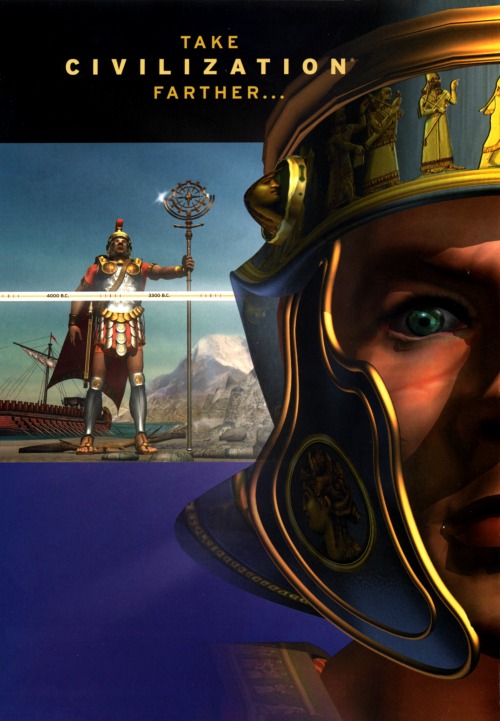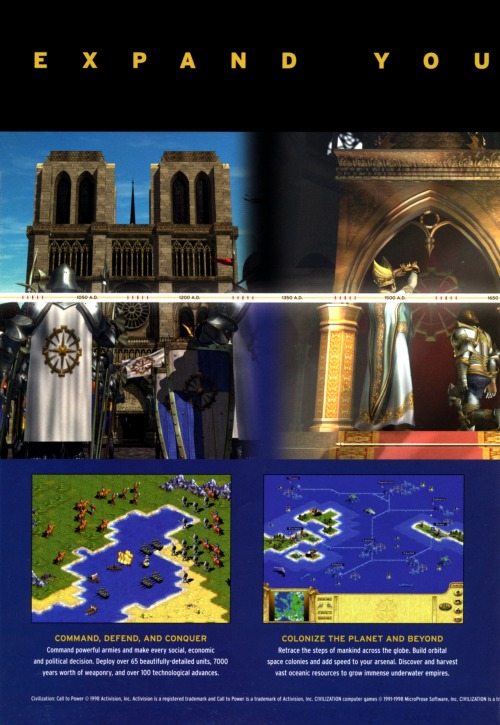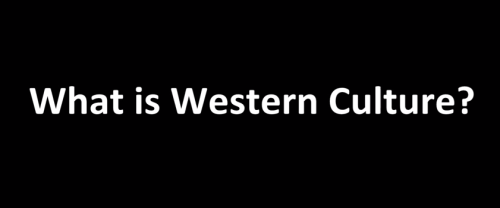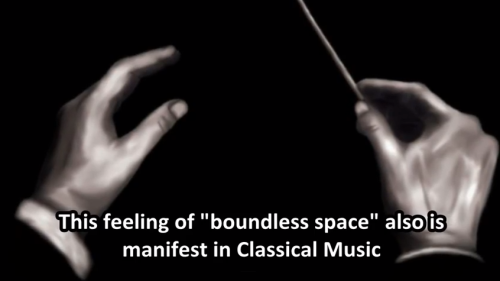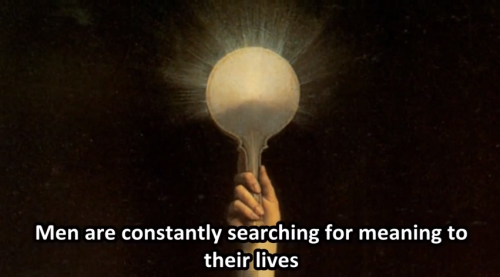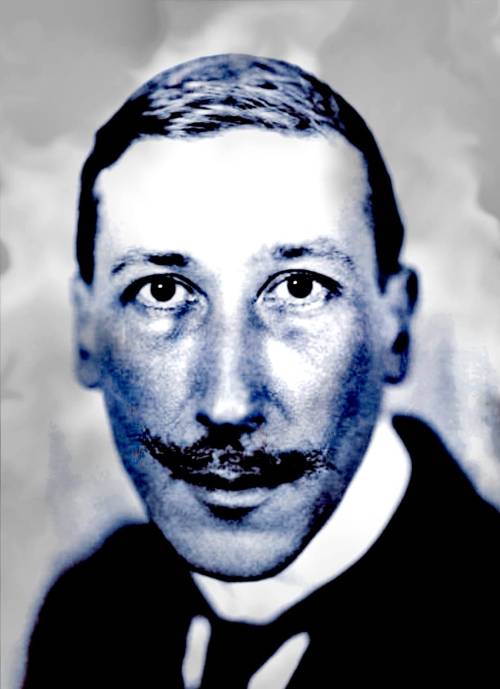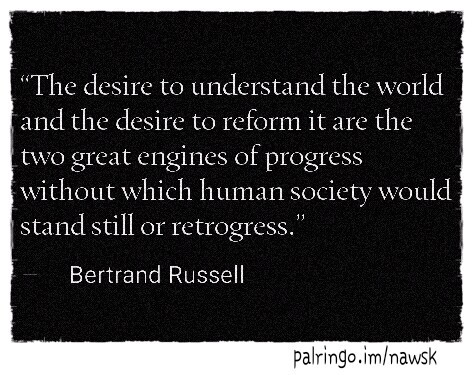#civilization
Economics must not be relegated to classrooms and statistical offices and must not be left to esoteric circles. It is the philosophy of human life and action and concerns everybody and everything. It is the pith of civilization and of man’s human existence… In such vital matters blind reliance upon “experts” and uncritical acceptance of popular catchwords and prejudices is tantamount to the abandonment of self-determination and to yielding to other people’s domination.
As conditions are today, nothing can be more important to every intelligent man than economics… Whether we like it or not, it is a fact that economics cannot remain an esoteric branch of knowledge accessible only to small groups of scholars and specialists. Economics deals with society’s fundamental problems; it concerns everyone and belongs to all. It is the main and proper study of every citizen.
— Ludwig von Mises, Human Action, pp. 874-875
Traditional civilization — Guénon affirms — has metaphysical points of reference. It is characterized by the recognition of an order higher than all that is human and contingent, and by the presence and authority of elites that draw from this transcendent plane the principles and values necessary to found a well-articulated social organization, to open the paths to higher knowledge, and finally, to give life true meaning. At the opposite pole lies modern civilization, which is defined by desacralization on a grand scale, by the systematic denial of all that is superior to man as an individual or as a collective group, by materialism, and by the impulse to realization in the sense of productive activity on a purely secular and temporal plane, an insane activism. Two books by Guénon, La crise du monde moderne [Crisis of the Modern World] and Le règne de la quantité et les signes des temps [The Reign of Quantity and the Sign of the Times], contain the essential elements of this critique. In those two works, themes already discussed by various authors of the past and the present acquire a particular sharpness and a firmer foundation.
Julius Evola translated by G. A. Malvicini
Post link
We shall never return to social sanity til we begin at the beginning. We must start where all history starts, with a man and a woman, and a child.
As it is, we begin where history ends, or, rather, where disjointed journalism ends. We stop suddenly with the accidental truncation of today’s news; and judge everything by the particular muddle of the moment. Ours is a sociology of snapshots; and snapshots always fix human figures in postures not only silly but stiff.
- G.K. Chesterton, May 3, 1919, Illustrated London News
Chris Geiger, Kellen Terrett, and Mark Colomb soldier on playing Civilization 5. Thanks to Chicago’s Nerdologues for having us.
Episode 2 of Twitter Bros play Civ 5. Chris Geiger, Kellen Terrett, and myself played a whole lot of Civ 5 and recorded it.
Chris Geiger of The Nerdologues invited Kellen Terrett and myself to play Civ 5. We recorded it and will be sharing the thing over the course of a couple weeks. Super fun.
While we’re swinging for the fences, here’s Lewis Lapham pondering the unfathomable immensity of the cosmos: “Isn’t that kind of the fun, the looking into the vast darkness ripe with wonders that will never cease? The limitless expanse of human ignorance … rouses out the love of learning, kindles the signal fires of the imagination. We have no other light with which to see and maybe to recognize ourselves as human … To bury the humanities in tombs of precious marble is to deny ourselves the pleasure that is the love of learning and the play of the imagination, and to cheat ourselves of the inheritance alluded to in Goethe’s observation that he who cannot draw on three thousand years is living hand to mouth. Technology is the so arranging of the world that it is the thing that thinks and the man who is reduced to the state of a thing. Machine-made consciousness, man content to serve as an obliging cog, is unable to connect the past to the present, the present to the past. The failure to do so breeds delusions of omniscience and omnipotence.”
This and more in today’s culture roundup.
(Image Credit: Autopsy of the First Crocodile, Onboard, Upper Egypt, by Ernest Benecke)
Post link
It’s not just that the concept of Western civilization is bankrupt, racist bullshit … it’s that it’s much fresher bullshit than you might think. Kwame Anthony Appiah provides an excellent primer: “European and American debates today about whether Western culture is fundamentally Christian inherit a genealogy in which Christendom is replaced by Europe and then by the idea of the West … If the notion of Christendom was an artifact of a prolonged military struggle against Muslim forces, our modern concept of Western culture largely took its present shape during the Cold War. In the chill of battle, we forged a grand narrative about Athenian democracy, the Magna Carta, Copernican revolution, and so on. Plato to Nato. Western culture was, at its core, individualistic and democratic and liberty-minded and tolerant and progressive and rational and scientific. Never mind that premodern Europe was none of these things, and that until the past century democracy was the exception in Europe—something that few stalwarts of Western thought had anything good to say about. The idea that tolerance was constitutive of something called Western culture would have surprised Edward Burnett Tylor, who, as a Quaker, had been barred from attending England’s great universities. To be blunt: if Western culture were real, we wouldn’t spend so much time talking it up.”
This and more in today’s culture roundup.
(Image Credit: The Plumb Pudding in Danger, James Gillray)
Post link
Chabon, Lethem, Eggers, Saunders, Whitehead: the literary luminaries of the nineties made their names on a fantastical escapism, more determined to entertain than they were to provoke. Now that the world’s gone even more to shit, Sam Sacks wonders if their appeal has worn thin: “the central dilemma of the nostalgist’s aesthetic: Can a novelist both recapture the innocent pleasures of storytelling and at the same time illuminate the complex realities of experience? In stable and prosperous times, truth and entertainment can overlap. But periods of crisis wedge them apart, and being faithful to one compromises the other … I find myself missing ambivalence—a quality that rarely squares with entertainment. There must be precious few readers who don’t already feel well disposed to tales of World War II heroes, fugitive slaves, and Abraham Lincoln.”
This and more in today’s culture roundup.
(Ilustration: Nathan Fox)
Post link
Literature loves a hoax—the Daily itself may have perpetrated one as recently as yesterday, though you didn’t hear it from me. Clifford Irving, who’s responsible for one of the great written ruses of the past fifty years, isn’t given the credit he deserves as a creative liar. Paul Elie tells his story: “Irving, while living in Ibiza in 1971, concocted a bogus autobiography of Howard Hughes, the reclusive billionaire tycoon. Irving, a Manhattan-born author of three novels that had sold poorly, saw it as a low-risk, high-adrenaline stunt, a kick at the pricks of New York literary society. It was the kind of thing a writer could try and hope to get away with in the days before the Internet laid all—or most—fraudsters bare. That ‘stunt’ turned Irving into the Leif Erikson of literary hoaxsters. (The forged Hitler Diaries would not appear until the 1980s.) Irving got advances upward of $750,000 from McGraw-Hill; fooled the publisher, handwriting experts, and Life magazine’s editors; and stirred the publicity-loathing Hughes to comment—all of which seems to surprise him even now. ‘I was a writer, not a hoaxer. As a writer, you are constantly pushing the envelope, testing what people will believe, and once you get going you say, They believed that; maybe they’ll believe this … ’ ”
This and more in today’s culture roundup.
(Image Credits: By Nick Cunard/Rex/Shutterstock (Lehrer), Alberto E. Rodriguez/Getty Images (Albert), Schiffer-Fuchs/Ullstein Bild/Getty Images (Frey), Steve Helber/A.P./Rex/Shutterstock (Erderly), from Bettmann/Getty Images (Irving, Cooke).)
Post link
“No, wilderness is not a luxury but a necessity of the human spirit, and as vital to our lives as water and good bread. A civilization which destroys what little remains of the wild, the spare, the original, is cutting itself off from its origins and betraying the principle of civilization itself.”
Desert Solitaire: A Season in the Wilderness: A Celebration of the Beauty of Living in a Harsh and Hostile Land — Edward Abbey
“The war also revealed the almost incomprehensible phenomenon that civilized peoples know and understand one another so little that one can turn to the other with hate and disgust.”
~Sigmund Freud
“It goes without saying that a civilization which leaves so large a number of its participants unsatisfied, and drives them into revolt, neither has nor deserves the prospect of a lasting existence.”
Sigmund Freud
The Future of an Illusion

